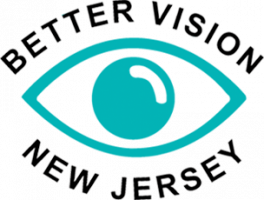What is keratoconus?
Keratoconus is a condition where the cornea (the front surface of the eye) progressively bulges forward in a cone-like manner and becomes thinner. In a normal eye, the cornea is uniformly round and dome-like. Light can enter through the regular cornea and form a clear image in the eye. In an eye with keratoconus, the cornea is no longer round but becomes slightly cone-like. This subtle cone-like shape is usually off-center and results in irregular astigmatism. When light passes through the cornea of an eye with irregular astigmatism, it becomes distorted so that it no longer creates a clear image.
- Slightly blurred vision
- Doubling or halos around images
- Increased glare at night
- Frequent increases in glasses prescriptions
However, this condition is progressive until ages 35-45. Patients with more advanced forms of keratoconus may experience additional symptoms, including significant visual blur and distortion, poor vision even with glasses, redness, and pain.
How do we treat keratoconus?There is a wide range of treatments for keratoconus, depending on the severity of the condition.
Glasses or soft contact lensesFor very mild forms of keratoconus, a glasses prescription can correct the blurred images created by the distorted cornea. Soft contact lenses are also an option for mild forms of keratoconus and can provide clear and comfortable vision.
Rigid gas permeable (RGP) lenses or scleral lensesFor patients with moderate to severe forms of keratoconus, glasses and soft contact lenses may not provide adequate vision correction. RGP lenses provide a round and regular surface that masks the protruding, cone-like shape of the keratoconic cornea. Doing so helps produce a clear image for the eye to see through. RGP lenses can be small and rest on the cornea. They can also be large and rest on the sclera; these types of lenses are called scleral lenses. Both can provide clear vision for patients with keratoconus.
Surgical treatmentsThere are also surgical treatments that treat keratoconus. Corneal Collagen cross-linking is a procedure that can help slow the progression of keratoconus. We typically recommend it at an earlier age so the cornea’s shape does not continue to worsen over time. Corneal transplants can also correct keratoconus by providing a regular, round cornea in place of the keratoconic cornea. However, due to the risks of surgery, it is recommended primarily for those with advanced forms of keratoconus.
Dr. Yang completed the Cornea and Contact Lens Residency at the SUNY College of Optometry and is highly experienced in fitting soft, RGP, and scleral contact lenses for our keratoconic patients. Our office will perform a comprehensive evaluation to determine the best treatment for you.
Ready to request an appointment?
Fill out the form and we will get back to you shortly!
What makes Better Vision New Jersey so exceptional? Read what our patients have to say.
CLICK ON OUR MAPS FOR DIRECTIONS TO OUR CRANFORD OFFICE


